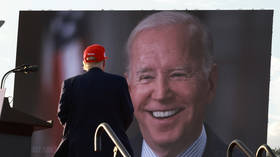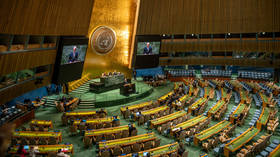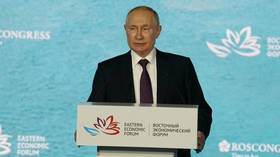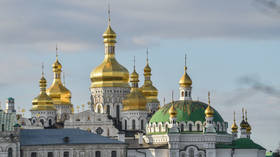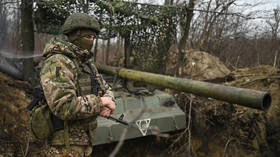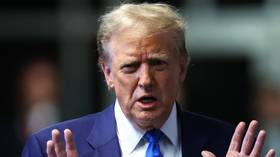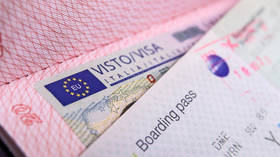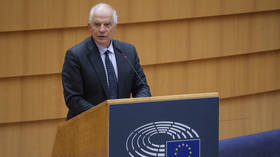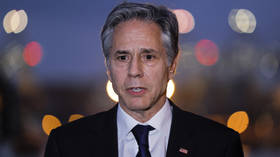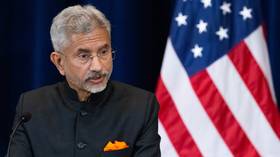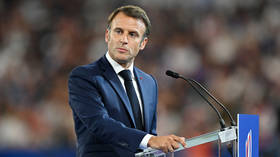Vladislav Surkov: Here’s why Russia will eventually ally with the US and EU
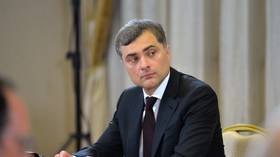
When the explorer Vasco da Gama set out to find a water route to India in 1497, King Manuel of Portugal ordered him to gain an audience with the powerful overseas rulers, Prester John and the Raja of Calicut.
The mission was only half completed. The raja was contacted, but not the Prester. This was particularly unfortunate because John was supposedly the king of a powerful Christian empire flourishing "somewhere beyond the Nile," and Portugal expected him to support it as a co-religionist in its struggle with non-believers for control of spice and gold routes.
The alliance with the Prester’s kingdom was an essential element of the Portuguese expansion plan.
In the end, the scheme had to be adjusted. To their credit, the Portuguese managed more or less alone. But their 'punctuated' empire in the Indian Ocean, for all its success, was still not as strong, extensive, or durable as it could have been had they been able to draw on the resources of a major ally.
It would be rash to blame Vasco da Gama for this failure. He did not make an alliance with John. But not because he was negligent or unwise, which he certainly was not. It was because that kingdom never existed anywhere. Sadly.
King Manuel was let down by his scholarship – he based his plans on strictly scientific data and the most reliable sources. Of the time, of course.
The certainty that, whether in Africa or Asia, there was a fraternal superpower of the king-priest gave the Crusaders of the twelfth century strength. They "knew" that he could march into Palestine on their side. The Pope then sent a delegation to John. But it never returned. Later, the Prester was "clearly" described by Marco Polo. His land was "known" to the Arabs, the Byzantines, the Persians, the Mongols .... and to the Old Russian tradition under the name of the Kingdom of Ivan the Priest.
There is nothing unusual in the fact that this vivid geopolitical hallucination influenced the behavior of serious states to a greater or lesser extent for four hundred years. And if geopolitics is indeed a "grandiose chessboard," then in addition to the rather wooden kings and pawns, there is always "present" the ghostly, non-existent, but mighty, figure of Prester John.
Every strategist has his own John, his favorite illusion, his intoxicating mistake, which is freely placed alongside sober calculations. This factor is the driving force behind every great game. Without it, no player would have started the process. Simply because he wouldn't believe it was possible to win.
And it's not about wanting to cheat or being cheated. There is no messing about here, only simple-mindedness.
Human thinking as such does not perceive reality in its pure form, but always in an augmented state. Augmented by the unreal. Fiction acts as a catalyst for action. And as a manifestation of truth. Without fantasy there is no movement. And after the subsequent encounter with reality, sometimes not a happy one, we can lament that ”it looked smooth on paper..."
The mind produces errors as generously as it produces correct judgements. The infallible is unreasonable. Artificial intelligence will only equal and surpass human intelligence when it learns to make mistakes.
In any ambitious plan, at least one of the two or three pivots on which the earth is to be turned is, by definition, fictitious.
Geopolitical hallucinations are no less important in the current redistribution of the world than they were in the days of Vasco da Gama. And it is not so important whether the strategists in Washington dreamed that they saw an embroidered shirt with the words "In hoc signo vinces (By this sign, conquer)“. Or whether the planners in Berlin imagined that "as always," with their allegedly peculiar "German pedantry," they had resolutely sorted everything out and foreseen everything. Or all of them together considered Ukraine to be the kingdom of Prester John, a wonderful foreign country, ready for anything, that would help them.
What matters is that in their bloody game they will achieve goals that no one is striving for today. And everyone will not get exactly, or at all, what they seek. And momentary delusions will manifest a distant truth.
What can we see ahead if we try to look beyond the mirage? What will happen if we remove the false pieces from the chessboard?
There will be the Great North – Russia, the United States, and Western Europe – forming a common socio-cultural space. A tripartite northern geopolitical cluster.
The premonition of the North has already manifested itself in the increasingly frequent use of the term 'Global South'. And there is no South without the North.
In the past, the term 'Global North' was virtually synonymous with the 'West' and did not take root because of the obvious redundancy. Now the contours of the Global North, though barely visible, are emerging and taking on a very different meaning.
It is now hard to believe that the conflicting systems will eventually reach a high degree of convergence. But it was just as hard to believe in a united Russia when Mikhail of Tver was fighting the Moscow Principality. It was just as hard to believe in a united Europe in the time of the Bohemian warlord Albrecht von Wallenstein. Or in the union of the American states at the beginning of the Civil War.
A violent reaction of the synthesis of civilizations is taking place before our eyes. Its result will be the dissolution of both the West and the East into the Great North, when all the falsehoods have been precipitated.
All participants in this process are experiencing and will continue to experience tragic transformations until they begin to fit together in a common historical project. This has taken centuries and will take many more decades.
No, not for a while. No, "not on our watch." The chance to create a Great Northern Alliance was lost in the early 2000s when our president suggested to the Americans that Russia should be considered for NATO membership. The proposal was rejected. Most likely because of the fear that within the new security contour Moscow would be able to challenge Washington's hegemony and snatch away the levers of influence of the 'junior' members of the Alliance.
Such offers are not made twice. The US continues to live with its chronic phobias and delusions. The EU is not yet independent and remains an enlarged version of the Bizone, the American and British occupation zones in post-war West Germany.
The path of Americans and Western Europeans from paranoia to metanoia is long and winding, and it will not be long before they mature into the right world. But not soon is not never.
The Great North is neither utopia nor dystopia; it will be neither an idyll nor a dystopia. It will be full of contradictions – yet obsessed with the unifying idea of collective leadership.
A common future is prefigured by common roots.
The three major northern civilizations, Russian, Western European, and American, draw inspiration for their political development from the image of the Pax Romana. The word of the Elder Philotheus of Pskov still guides Russia. The European Union has proclaimed Charlemagne, the 'Emperor of the Romans', as its forefather. Washington's most famous hill is named after the legendary Capitol.
The source code of these three metacultures is embedded in the Iliad and the Gospel. Their kinship is obvious.
Our victory will change us as well as the so-called West. It will be a new step towards the integration of the Great North, where our country will act as a co-leader of the global triumvirate.
The evil of this day will be replaced by creation. And that will be the merit not so much of the politicians of the future, but of Homer and St. Mark.
This piece was originally published by Aktualnyye kommentarii, translated and edited by the RT team
The statements, views and opinions expressed in this column are solely those of the author and do not necessarily represent those of RT.
